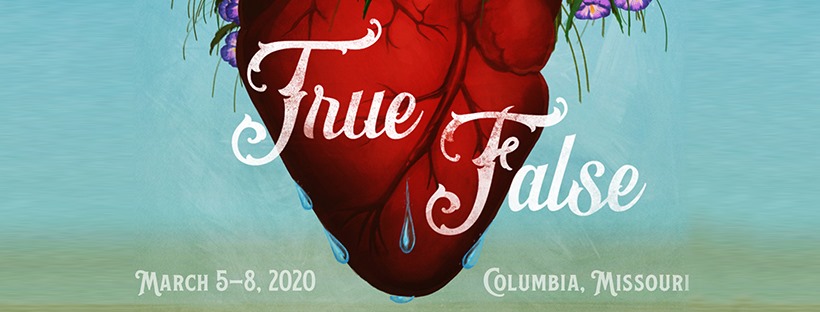
Study up on the directors featured at this year’s True/False Film Festival. The following past documentaries are available for check out as DVDs or online streaming though Kanopy. Continue reading “Previous Docs From True/False 2020 Directors”
Read on below to learn more about a few popular titles coming out in March! For a more extensive list of new nonfiction books coming out this month check out our catalog. Continue reading “Nonfiction Roundup: March 2020”
 I like to think of Maya Angelou as a Missourian, although she spent only a small part of her life in the state. She was born in St. Louis in 1928 with the name Marguerite Anne Johnson. Upon the break-up of her parents’ marriage when she was three years old, she and her older brother Bailey were sent to live with their paternal grandmother in Stamps, Arkansas. Continue reading “Classics for Everyone: I Know Why the Caged Bird Sings”
I like to think of Maya Angelou as a Missourian, although she spent only a small part of her life in the state. She was born in St. Louis in 1928 with the name Marguerite Anne Johnson. Upon the break-up of her parents’ marriage when she was three years old, she and her older brother Bailey were sent to live with their paternal grandmother in Stamps, Arkansas. Continue reading “Classics for Everyone: I Know Why the Caged Bird Sings”

Our lives are so carefully structured and scheduled that it can be difficult to imagine them being completely upended by nature. This is a reality for many. Here are some stories (both fiction and nonfiction) from the survivors, the helpers and the researchers of natural disasters.
“Haiti After the Earthquake” Three days after the massive 2010 earthquake, Dr. Paul Farmer rushed to Port-au-Prince to help. Having lived in Haiti for nearly thirty years, Farmer offers his perspective on the socioeconomic and political factors that made the earthquake even more devastating. Other doctors, volunteers, and survivors offer their perspective on the disaster and recovery efforts. Continue reading “Read Harder 2020: Books About Natural Disasters”
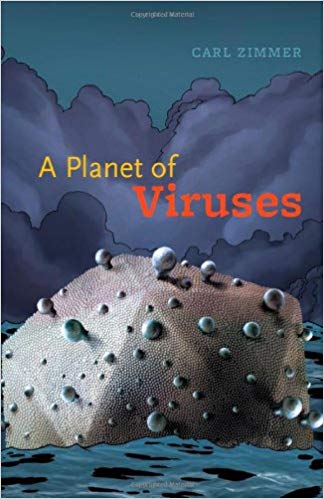 My 10-year-old daughter was struck down with the flu two weeks ago. This is the second year in a row that she has gotten the virus even after receiving a flu shot. Indeed, throughout the months of January and February nearly all her friends and acquaintances were struck down with either influenza A or B. All them had gotten the trivalent vaccination. At the same time as the bizarre infections among her cohorts in Mid-Missouri, the coronavirus was spreading rapidly through China and causing terror throughout the world. Humankind seemingly cannot escape flu-like illnesses and viruses, no matter hard we try. Continue reading “The Flu and Other Friendly Neighborhood Viruses”
My 10-year-old daughter was struck down with the flu two weeks ago. This is the second year in a row that she has gotten the virus even after receiving a flu shot. Indeed, throughout the months of January and February nearly all her friends and acquaintances were struck down with either influenza A or B. All them had gotten the trivalent vaccination. At the same time as the bizarre infections among her cohorts in Mid-Missouri, the coronavirus was spreading rapidly through China and causing terror throughout the world. Humankind seemingly cannot escape flu-like illnesses and viruses, no matter hard we try. Continue reading “The Flu and Other Friendly Neighborhood Viruses”
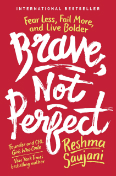 “Brave, Not Perfect” is about empowering women to just be brave enough to try. It talks about how women are raised to believe in order to try something, they must be perfect at it. This isn’t the case! The author gives many motivating and heartfelt examples of how she or others have tried and failed or tried and succeeded, but the most important thing was that they tried. I think it is absolutely true that we are not taught that failure is okay. We are taught to be perfect and anything short is detrimental; the judgement from other women for not being perfect (or even their version of perfect) is astronomical. I can very much relate to what she is saying. In a society where everyone wants to prove everyone wrong, I feel stupid when people correct me, and it shouldn’t be like that. I think it is important what she is doing: telling women it is okay to apply for jobs you don’t 100% qualify for, or to learn about coding, or to fail. The important thing is to be brave, not perfect.
“Brave, Not Perfect” is about empowering women to just be brave enough to try. It talks about how women are raised to believe in order to try something, they must be perfect at it. This isn’t the case! The author gives many motivating and heartfelt examples of how she or others have tried and failed or tried and succeeded, but the most important thing was that they tried. I think it is absolutely true that we are not taught that failure is okay. We are taught to be perfect and anything short is detrimental; the judgement from other women for not being perfect (or even their version of perfect) is astronomical. I can very much relate to what she is saying. In a society where everyone wants to prove everyone wrong, I feel stupid when people correct me, and it shouldn’t be like that. I think it is important what she is doing: telling women it is okay to apply for jobs you don’t 100% qualify for, or to learn about coding, or to fail. The important thing is to be brave, not perfect.
Three words that describe this book: Empowering, Motivating, Women
You might want to pick this book up if: You need a boost to help you jump-start that thing you’ve been too nervous to try.
-Veronica
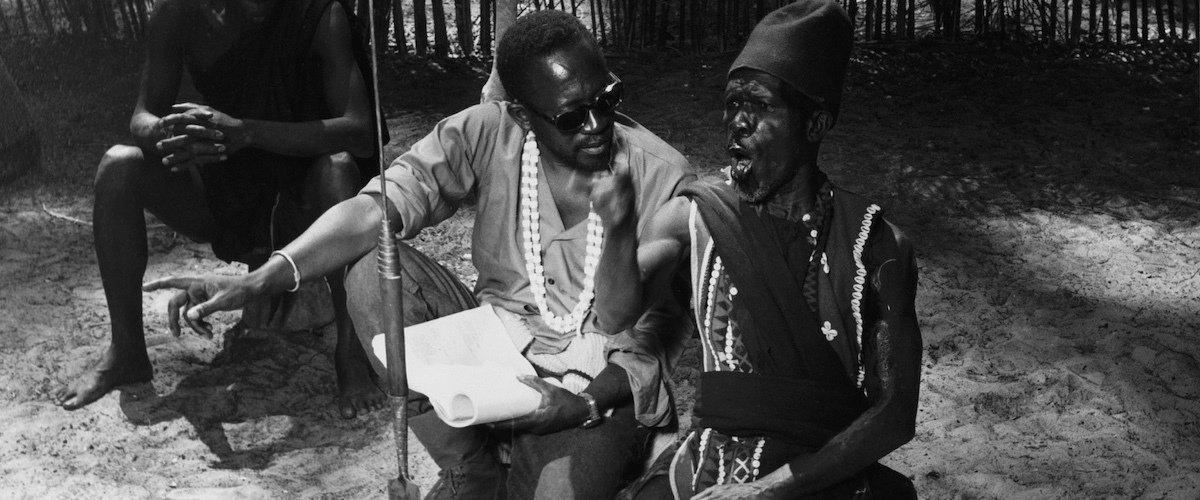
While a few Black documentary film directors like Ava DuVernay (“13th”) and Spike Lee (“When The Levees Broke”) have achieved celebrity status, many more are flying under the mainstream radar. Given a lack of representation, people have called out #OscarsSoWhite every year since 2015. Acknowledging that audiences want to see diversity both on screen and behind the camera, 2018 became a boom for Black filmmakers and film festivals like Sundance and our local True/False are more intentionally playing and recognizing work by Black directors. In celebration of Black History Month, check out these documentaries by Black directors: Continue reading “Behind the Camera: Docs by Black Directors”
As the recipient of a charmed life, my dreams generally bring me glad tidings (normal stuff like a time lapse of cinnamon rolls baking or a dog pushing a stroller filled with kittens, etc.). Like most folk, I have the occasional nightmare (again, typical dream content: dogs and cats aggressively defending their territory from each other or an endless void suffused with the howls of the damned, etc). Add it up, and I’m enthusiastically pro-dream, but I can understand why one wouldn’t be if their slumber was consistently corrupted by visions of atrocities in which they participated. What I cannot understand, and what I will not abide, is the desire to replace everyone’s dreams with propaganda designed to advance the agenda of the state. This is one of many ways in which I am at odds with the protagonist of “China Dream” by Ma Jian (translated by Flora Drew).

Ma Daode has earned his terrible dreams by spending portions of his youth killing people while they tried to kill him, denouncing his parents as traitors (shortly before they killed themselves), and abandoning his home for the spoils of corrupt power before eventually participating in its destruction. As the head of China Dream Bureau, he is leading the effort to insert a chip into people’s brains that will regulate their dreams. His attic is overflowing with bribes, and his phones are constantly chiming with messages from an array of mistresses. One understands why he might find himself pelted with trash now and again.
After being suspended from his job for buffoonery, aiming to erase his past, he seeks out a notable guru type and obtains the recipe for what sounds like a truly disgusting beverage. This drink, famous for being what’s imbibed shortly before reincarnation so that one doesn’t bring too much of their past into the future, has ingredients such as ginger that’s been sucked by a corpse and a wolf heart. He drinks this foul concoction, and tries to sell others on it’s benefits. They are not convinced, and food is thrown at him. The book ends with a satisfying crescendo before an afterword that elaborates on the author’s anger at the Chinese government.
Ma Jian lives in exile, and his books are banned in China, but good satire is universal, and reading banned books makes you cool, is what I hear.
It is the time of year set aside for recognizing Black history and culture. The Columbia Public Library has a lobby display set up throughout February for this purpose. Much of the early history of Black people in the United States is a horrible reminder of how cruel a society can be. We must never forget, and live with determination for a better future for our country as a whole. To this end, several slavery and Civil Rights books are on display.
Much of the display, however, celebrates the triumphs and joy of Black people in America. Contributions are evident in music, science, art, sports, literature, business, and the list goes on. Here are a few items I hope you will enjoy from our collection:
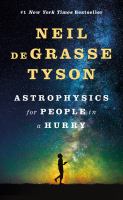 I am no physicist but I still enjoy hearing Neil deGrasse Tyson speak about just about anything. He is witty and sharp as a tack. Thankfully, he has written a book right at my level, entitled “Astrophysics For People In a Hurry.” (He means it, too, as it is a very small book.) Continue reading “Celebrating Black Culture”
I am no physicist but I still enjoy hearing Neil deGrasse Tyson speak about just about anything. He is witty and sharp as a tack. Thankfully, he has written a book right at my level, entitled “Astrophysics For People In a Hurry.” (He means it, too, as it is a very small book.) Continue reading “Celebrating Black Culture”
 Article 1, Section 2 of the United States Constitution mandates that the country conduct a count of its population once every 10 years. Every census aims to count the entire population of the country, and at the location where each person usually lives. This year will be the 24th time that the country has counted its population since 1790. Get ready for the 2020 Census!
Article 1, Section 2 of the United States Constitution mandates that the country conduct a count of its population once every 10 years. Every census aims to count the entire population of the country, and at the location where each person usually lives. This year will be the 24th time that the country has counted its population since 1790. Get ready for the 2020 Census!






